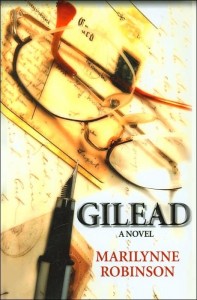[3-minute read]
Here’s a foolish thing, a very 20th-century sort of stinkin’ thinkin’. But worry not, it ends with two great women (and one fine husband, not me) sending out a peculiar but quotable encouragement, and some of us might listen.
I love writing, or having written, or at least the romance of writing. The Canadian Broadcasting Corporation, the dearly beloved Mother Corp of all Canucks leftish, artsy and true, has a long-running radio program called “Writers and Company”. It’s an hour-long conversation between the quietly enthusiastic, impeccably prepared Eleanor Wachtel and a superb range of authors: novelists, playwrights, essayists, poets, from Zadie Smith to George Saunders to Arundhati Roy. These are three of my recent listens, but I wouldn’t likely have heard them if I’d stayed in one particular mental rut.
For me, Writers ‘n’ Co was, for the longest and silliest time, mostly an occasional, accidental listen, often when I happened to be in the car and remembered what time it was: specifically, the Sunday 3 pm slot on CBC’s Radio 1, where Wachtel has been asking her terse but evocative questions since 1990. I’d catch part of a conversation, sometimes the whole thing if there was a writer known to me, and I’d regularly and fervently resolve to never miss another; I found each episode thrilling as a teacher of readin’ ‘n’ writin’, and began to connect it to my own spastic undertakings as a scribbler. (A gutsier, more daring me might have blustered, Wachtel’s gonna interview ME one day. Well. Maybe not. I finally did meet her, briefly, a year or so ago. She was plainer and funnier than she had always sounded to me, that sombre but voluptuous voice teaching me from tinny speakers.)
But I was never much of a planner, and the number of interviews I caught was small compared to the torrent of writer-talk that was available.
I should likely have been writing about my visit with Margaret Atwood Monday night. (Me, and about 500 close friends.) I have strong feelings, overwhelming at times, about Beirut and Paris (and, did you hear? eastern Nigeria) that ought to be recollected in whatever tranquillity I can scrape together. What’s more, I could be writing about my basketball teams, which are pretty darned fascinating in themselves and in the contrasts they present with each other. Heck, I could even dive back into my stillborn book, Everything You Always Wanted to Know About Men and Sport and Meaning But Were Too Distrapathetic¹ to Ask.²
I may yet write the darned things.
¹Not a real word. (‘Til now.) ² Not its real title.
But not tonight.

The Quietly Magnificent Seven, in freer times. Community service becomes treason to a government bigoted and paranoid.
The short answer to the title question above is that, for the fourth day in a row, I’m reminding a vanishingly fine slice of humanity — you guys, the ones who read my stuff — about the seven Baha’i leaders who, by all accounts, remain amazingly resolute and even light-hearted about the kangaroo-court decision that put all of them in jail seven years ago. (Well, it was seven years last May, when I wrote this series of profiles as part of the #7Bahais7Years consciousness-raising campaign. It’s now seven-and-a-half.) They are awesome.
Six months ago nearly to the day, I wrote: “The Seven are enemies of an insecure state simply because of their membership in an often-ostracized community, which has been subject to nearly two centuries of bigoted slander from the entrenched shiah orthodoxy in what was once Persia, now Iran.” Not exactly Twitter-verse, but not a bad sentence, if I do say. I then went on to write about my getting to know the fourth, Afif Naeimi, andthat’s the point of this short post. I commend him to your attention.
Over the previous three days, I’ve also re-pubbed my profiles of Mahvash Sabet, Fariba Kamalabadi and Jamaloddin Khanjani. (Three pretty links, all in a row.) Sorry, though: if you want to read RIGHT NOW about Number Five, Saeid Rezaie, well, you’ll just have to wait until tomorrow!³
³ Or, I suppose, you could search this site and find it lickety-split back in May, talented human that you are.
It’s my mother’s birthday. Were she still shuffling, flat-footed and bunion-aching, along this mortal coil of frayed and ravelled rope, she would be turning 95 today. She would be steamed. I’m so angry I could spit! she used to mutter when one of us, not always me, would race heedlessly past the wide but certainly finite fields of her patience. She loved life, doted on her family and especially those teeming crowds of grandchildren gathered around every Howden turkey. She’s a woman who suffered, and yet got pretty much what she had hoped for in life. In her last months, though, she’d had enough, and was quite-content-thank-you to be DONE with sleeping and waking and eating and all these things. One day in a hospital bed, she awoke, looked around with confusion and (at least the way I read it) growing dismay, and said, “Am I still here?”
Today is Enid Day. She died in 2006. (I remembered her, in one of my favourite and least-saleable pieces in JHdotCOM history, here: http://jameshowden.com/2006/11/enid-mary-elizabeth-howden/ . Sorry, still unable to hyperlink.) Her birth-day is when we most remember her. I got a note from Big Sister that looked forward to her third Enid Day in Nunavut, where she her last few years of “retirement” teaching some of the damaged and despairing children and youth of Cape Dorset. She was enticed there by my ex-wife, with whom she lives. (That’s a pretty good story, I figure, though not mine to tell, not yet.) So, happy Enid Day to them, to all my relations, and to you and me.
In memory of her, I have declared this SIV Week. I’m not sure who was more stubborn, Enid or my Dad, though I’d say both changed astral planes more easily than they often changed their minds. The stubbornness I rue with such arm-waving in my fourth son informs me — eventually, ruefully, guiltily — of just how cement-headed I so often and so chronically am. Solution? StubbornnessIsVirtue Week. SIV. If you can’t beat ’em, join ’em; if you can’t alter it, exalt it! Winston Churchill was stubborn. So were Gandhi, King, Teresa. So am I, if only I could beat that adamantine forehead of mine against more meaningful walls.
Therefore, this having been declared SIV Week, I’m taking several half-finished things that I’ve written over the past while — and, for various reasons, chief among them cowardice, fatigue and cerebral untidiness, haven’t had the poop to complete — and I’m GETTING THEM BLOODY WELL DONE. (I also remain, certainly, cursed by Enid’s endlessly repeated counsel that if a job’s worth doing, it’s worth doing well, which has led to more procrastination and dismayed unfinish-ing than either of us can abide.) So, first you’ll see, in the It’s All About Sports section, my final Final 4 basketball thoughts, though that American college hoops lollapalooza finished three weeks ago. Other gottawritems are even older, but won’t look so obviously out-of-date because they’re less particular.
So: I’m finishing stuff. I’m clearing the decks. Spring cleaning of the neocortical kind. Purging. Loosening my load, in hopes that new and fresh things might follow, but mainly out of brute determination to do-stuff-my-way-even-if-it-makes-no-sense-to-readers-’cause-Mum-never-gave-up-and-mulishness-should-sometimes-bear-fruit-even-if-it-looks-like-a-dungpile. It’s MY dungpile. I made it all by myself! Happy Enid Day, and Happy StubbornnessIsVirtue Week!!
The rest, below, is in explanation of what this site has done and does when it’s not SIVW.
I’m reading Atwood’s weirdly witty near-future dystopian nightmare trilogy of runaway climate, corporate takeover, canyonesque income disparity and biotech gone to its illogical conclusion. In the second novel, The Year of the Flood, an overused and under-loved young woman named Ren leaves a decent, if menial, job because there’s too much pain there. She goes, as a backup plan, to Scales and Tails, a strip-bar/brothel whose chief pimp, Mordis, at least appreciates her dance training.
Ms. Atwood channels through this hooker’s-minder-with-a-heart-of, well, maybe not gold but apparently harbouring more careful attention to and protection of Ren than her mother ever showed. (Heart of cynicized bronze, maybe.) Mordis remembers Ren from when his SekSmart Corporation interviewed her at a job fair hosted by her seedy arts college, the Martha Graham Institute. Ren has no illusions about the work she’s getting into, and has only one qualm:
Chuck Wendig is funnier than I am, even when he’s pissed off. Especially then.
More Chuck/Howdy distinctions: Wendig’s funnier, more productive, less frightened of fiction, more joyfully profane and (allegedly) actually makes decent money as a writer. (I actually quite like him, though.) He writes a blog called Terrible Minds which is particularly aimed at writers, and secondarily at those who enjoy and consume fantasy and science fiction, whether electronically or by manual analog movement of stained wood-pulp tissues. (So-called “pages” within three-dimensional, sometimes weighty and sharp-cornered “books”. Weird stuff.) He has met Neil Gaiman. He has a writing shed.
But here’s how Chuck and I are brothers: he is the father of a little boy that he’s evidently fascinated by and cuckoo about; he believes in creativity and wonder; he has a thing for Margaret Atwood; he’s wacky about words (his writing is like steroid-enhanced psychedelic popcorn and, like mine, digresses wildly but with way more profanity and phrases like “shit-shellacked”, “jerky lackwits”, “a ranty, yelly, gesticulating mess of a screed” [about “arting harder”], and “a pair of toddler underoos spackled with mess”; AND, if you thought I’d never get to the point, like me he is often inclined to spew inflammable verbal dragon-venom when men are hateful towards women and their aspirations. Chuck Wendig is bloody merciless and absolutely off-his-nut indignant when men are whiny, machofeeble, femophobic and protective of illogical and illegitimate privilege. It enrages him. It enrages me, though less colourfully and NSFW-ish.




